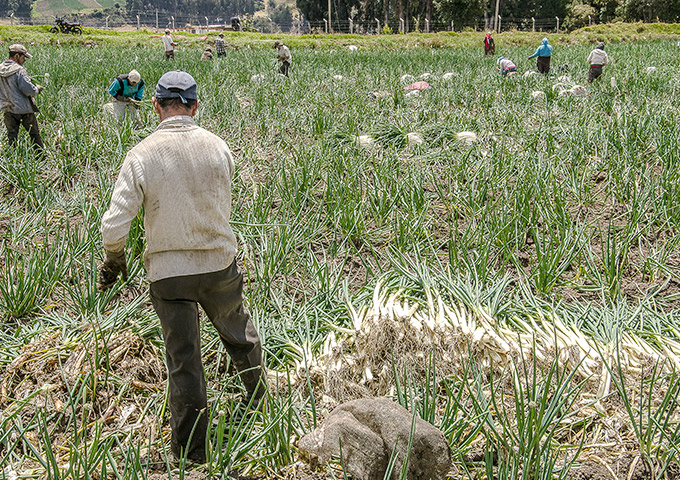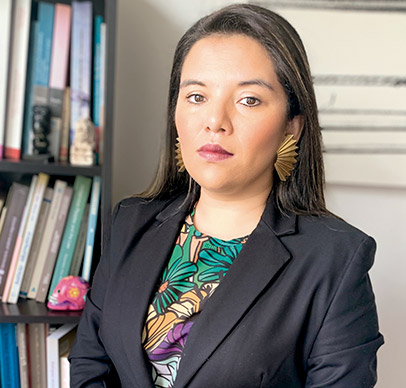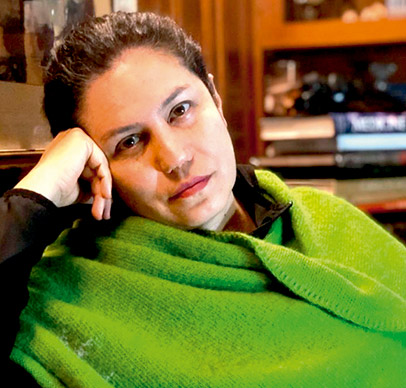Sujetos de especial protección
Por:Tania Valbuena
Foto:Juan Ramírez, Alberto Sierra Ximena Serrano, Milagro Castro
Cultura y sociedad

Por:Tania Valbuena
Foto:Juan Ramírez, Alberto Sierra Ximena Serrano, Milagro Castro
Durante los últimos años, se generalizó el uso del término ‘vulnerable’ en los ámbitos sociales, políticos y jurídicos. Recientemente, la pandemia acrecentó el empleo de esta denominación en los medios de comunicación para referirse a grupos de personas mayores, personal médico o poblaciones de bajos recursos. Sin embargo, abusar del uso del término podría afectar y estigmatizar aún más a estas personas y no necesariamente propiciar acciones humanitarias claras y efectivas que las conviertan en verdaderos sujetos de derecho.
Para entender esta problemática, las especialistas del Grupo de Investigación en Derechos Humanos de la Facultad de Jurisprudencia de la Universidad del Rosario, Diana Rocío Bernal, doctora en Bioética y Biojurídica, y Andrea Padilla Muñoz, doctora en Ciencias Jurídicas, estudiaron cómo el reconocimiento de los sujetos de especial protección, según la interpretación del capítulo 13 de la Constitución Política de Colombia (1991), toma hoy gran relevancia.
La investigación titulada Los sujetos de especial protección: Construcción de una categoría jurídica a partir de la constitución política colombiana de 1991, muestra la importancia de la construcción de esta categoría jurídica y hace énfasis en el reto que tiene el país para garantizar la protección a personas cuyos derechos son vulnerados.
“Todos podemos ser, en alguna circunstancia, vulnerables y, en consecuencia, ser sujetos de especial protección por condiciones de debilidad manifiesta o por la posición de indefensión dependiendo de la situación”, explicaron las profesoras Bernal y Padilla a Divulgación Científica, haciendo énfasis en la necesidad de que el Estado asegure el cumplimiento de los derechos de todas las personas en todos los niveles.
Más allá de la palabra
Ahora con la pandemia, las noticias muestran diversos usos de la denominación vulnerable: “Más de mil personas vulnerables fueron trasladadas ayer”, “Familias vulnerables reciben apoyo de…”, “adultos vulnerables, limitados para recibir apoyo”, “comunidades rurales más vulnerables”, entre otras similares. Pero la denominación interpretada sin cuidado podría dar a entender que se refiere a una cualidad de las personas, y que son estas las vulnerables, cuando en realidad, son sus derechos los vulnerados por múltiples factores o condiciones.

Entre otras poblaciones ‘vulnerables’ hoy mismo figuran los agricultores. “También se debe garantizar una adecuada cuarentena a los campesinos y seguir satisfaciendo su derecho de alimentación”, dice Diana Rocío Bernal, doctora en Bioética y Biojurídica
El concepto de grupo vulnerable se gesta por los movimientos internacionales, para mitigar los estragos causados por la segregación racial, religiosa o lingüística. En Colombia, se concreta en el Artículo 13 de la Constitución Política.
Sin embargo, la Corte Constitucional reconoció, a partir de la Sentencia T-282 (2008), como sujetos de especial proteccióna quienes se encontraban por razones históricas y culturales en condiciones menos favorables para el ejercicio efectivo de sus derechos.
El trabajo explica que las llamadas vulnerabilidades son contextuales y cambian en distintos escenarios. Por ejemplo, se presentan vulneraciones de derechos en las personas en condiciones de pobreza, subordinación, dependencia, marginalidad, territorio y precariedad económicas. También, en aquellos que por sus circunstancias físicas (edad, personas con discapacidad) están expuestos a limitaciones.
También en las víctimas de la violencia: desplazados, refugiados, exiliados, líderes políticos, periodistas y habitantes en zonas con problemas de orden público, entre otros.
Además, a aquellos que por su etnia o raza, orientación sexual, nacionalidad, lenguaje, orientación religiosa o situación jurídica han sido tradicionalmente discriminados. También pertenecen a este grupo las mujeres, madres cabeza de familia y en estado de embarazo.
En ese sentido, los Objetivos de Desarrollo Sostenible (ODS) ofrecen una serie de variables cuyo cumplimiento por parte de los gobiernos beneficiaría y favorecería los derechos fundamentales de los individuos.

Andrea Padilla Muñoz, doctora en Ciencias Jurídicas, afirma que “hoy, en la pandemia, el personal médico se convierte en la población que hay que proteger, porque está expuesto a situaciones que hacen vulnerables sus derechos”.
“Es importante destacar que ni los derechos ni los sujetos son una lista taxativa, sino que se entienden bajo la premisa de las circunstancias sociales, históricas, políticas, entre otras, que viva el país”, concluye el trabajo.
Por ello, y atendiendo al derecho internacional de los derechos humanos y al reconocimiento del pluralismo cultural, aquellos considerados jurídicamente sujetos de especial protección merecen un reconocimiento de derechos universales con enfoque diferencial.
La lectura coyuntural es muy importante, señala Padilla. “Hoy, en la pandemia, el personal médico se convierte en la población que hay que proteger, porque está expuesto a situaciones que hacen vulnerables sus derechos”. Entre otras poblaciones ‘vulnerables’ hoy mismo figuran los agricultores. “También se debe garantizar una adecuada cuarentena a los campesinos y seguir satisfaciendo su derecho de alimentación”, complementó Bernal.
En sus conclusiones, el estudio señaló que el reto más grande es el trabajo paralelo del Legislativo y el Ejecutivo para tomar medidas que garanticen la línea jurisprudencial de la Corte.
“El país debe garantizar el reconocimiento de estas personas, desde el enfoque diferencial, y así poder articular políticas sociales, en términos de objetivos y resultados, entre los diferentes programas, ámbitos e instituciones”
Bernal y Padilla resaltaron: “Debemos estar vigilantes, buscar mecanismos de protección si están vulnerando nuestros derechos; y a nivel personal también ser más solidarios, empáticos y compasivos para romper los círculos viciosos que generan vulneración de los derechos fundamentales”.